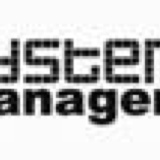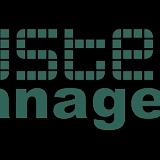Title Page
Customer Contract Review Checklist
Customer Info
-
Customer
-
Contract Type
-
Contract Annual Value (MYR)
-
Reviewer
-
Date Reviewed
Termination
-
What is the termination notice from customer? (number of months / weeks)
- Immediate Termination
- 7 days
- 14 days
- 30 days
- 45 days
- 60 days
- 90 days
-
In the event breach of contract by customer, how much notice can RI provide? (number of days / months / weeks)
-
Are we allowed to claim liquidated damages in the event of early termination from customer?
-
Operations Director to approve
-
In the event of change of control of group company, does the customer have the rights to terminate us?
-
Head of Finance to approve
Price & Payment Term
-
Does the contract reflect the agreed fees?
-
Comments
-
What are the payment terms (e.g 30 days in arrears/quarterly in advance)?
-
e-Extended Credit Term to be filled up
-
Interest chargeable for late payment?
-
Are there any clauses which restrict our liability to collect payment in full?
-
State the Clause
-
Photo of the Stated Clause
-
Term of Contract
-
Can we increase annually our prices following increases in our fixed costs (e.g. inflation or statutory changes)?
-
No. of Years of Fixed Price
-
Branch Manager to approve
-
Sales Director / Head of Customer Care to approve
-
Managing Director to approve
-
Regional Managing Director to approve
-
CEO to approve
Our Liability
-
Samples for Replies to Customer
1) RI shall be relieved of all obligations whatsoever in the event of force majeure of Act of God or other events that are unforeseeable and/or beyond its control preventing prompt or part or total fulfillment of such obligations.
RI shall not be liable for any indirect, incidental or consequential damages howsoever caused arising out of or in connection with Services under this Contract.
In any event, the total extent of RI's liability ( if any) hereunder shall not, regardless of the form of action, whether the contract, tort or negligence, exceed the amount of the charges actually paid by the Customer for the current year.
2) RI shall not be liable for any indirect, incidental or consequential damages howsoever caused arising out of or in connection with Services under this Contract.
Notwithstanding any other provision in this Agreement, each party’s total liability under this Agreement shall not exceed the annual Contract value (provided that there shall be no limit in respect of death or personal injury)." -
Do we indemnify the customer?
-
Types of liability
- Direct Physical losses and personal injury
- Loss of profit & business interruption
- No fault indemnity
-
Indemnity relating to direct physical losses – It would mean that, the insurer would need to indemnify the customer in the event the customer suffers financial losses due to any physical damage, destruction or theft in the customer’s property. As such, the key point to look for would be damage / theft to the customer’s property.
Indemnity relating to personal injury – It would mean that, the insurer would need to indemnify the customer in the event something happens to the person insured under this insurance resulting in the said personnel suffering any injury to the body, mental or emotion (i.e. nothing to do with property, more on personal injury to a person). As such, the key point to look for would be any personal harm / injury to the personnel of the customer. -
Direct Physical losses & Personal Injury: Branch Manager to approve
-
It would mean that, the insurer would need to indemnify the customer for loss of income or where the business operation of the customer is interrupted due to those situations set out in the policy, but usually would be natural disaster. Usually, the question would be to what extent the loss of profit or business interruption would cover. Generally, the loss of income covered in such clauses would be any loss of income due to disaster related incidents forcing the closing of the customer’s business or interruption to the customer’s business and could go to the extent of any loss of income arising during the rebuilding process of the facility / business premises of the customer after a disaster
-
Loss of Profit & Business Interruption: Managing Director to approve
-
It would mean that the insurer would need to indemnify or pay to a third party injured or killed in an accident without requiring the such proof that the fault or negligence is on the part of the customer. Generally, most insurance policies would have a disclaimer that if the fault or negligence is on the part of the customer / insured party, there would be no indemnity paid but this clause is exactly the opposite of that.
-
No Fault Indemnity: Regional Managing Director to approve
-
What is the financial cap on our liability? Please input the value.
-
Select the range of the liabilities value
-
Branch Manager to approve
-
Head of Finance / Sales Director / Head of Customer Care
-
Managing Director to sign
-
Regional Managing Director to sign
-
CEO to sign
Penalties
-
Are there any penalties imposed on us in the event of non-performance?
-
State the Penalties
Insurance
-
Workmen Compensation
Rentokil Initial does not have workmen compensation, alternatively we do provide SOSCO to our employees. -
Rentokil Initial is insured under Comprehensive General Liability which indemnify us for all sums which Rentokil Initial becomes legally liable to pay as Compensation in respect of:
a) Personal Injury, or
b) Property Damage -
Are we required to have any types of insurance other than public & employer's liability?
-
Please specify the nature of insurance request by customer.
-
Head of Finance to approve
-
Any other insurance provisions required (e.g. customer as joint/additional named insured or noted on the policy, waiver of subrogation rights)?
-
Head of Finance to approve
-
What types of insurance provisions required?
-
Managing Director to approve
Force Majeure / Acts of God
-
Is there a clause releasing us from our obligations where we are prevented from complying due to matters outside our control?
-
State the Clause
Anti-Bribery
-
Are there any anti-bribery clause in the contract
-
Please add into Contract
Each party undertakes that:
a. neither it nor any party acting on its behalf has offered, given, requested or accepted any undue financial or other advantage of any kind in any way connected with the entering of this Contract;
b. it shall throughout the course of this Contract comply with, and take reasonable measures to ensure that any other parties acting on its behalf comply with, all applicable laws, statutes and regulations relating to anti-bribery and anti-corruption (‘Relevant Requirements’);
c. it has and shall maintain in place throughout the term of this Contract its own policies and procedures to ensure compliance with Relevant Requirements and will enforce them where appropriate;
d. it shall immediately report to the other party any offer, request or demand for any undue financial or other advantage of any kind received from the other party or any party acting on its behalf in connection with the performance of this Contract; and
e. unless apparent at the commencement of this Contract (for example where the Customer is a public organisation), it shall immediately notify the other party (in writing) if a public official becomes its officer or employee or acquires a direct or indirect interest in that party. -
Are the obligations equally shared by RI & Customer?
Performance Bonds / Bank Guarantees
-
Does the contract require financial guarantees, performance bonds, parent company guarantees or related undertakings?
-
Head of Finance to approve
Specification, Scope of Works, Service Levels & KPIs (Sales Colleague to review with BM)
-
Are they appropriate and achievable?
-
Comments
Other Clauses
-
Are there any other onerous or unusual clauses?
-
Please provide the details of the clause.












